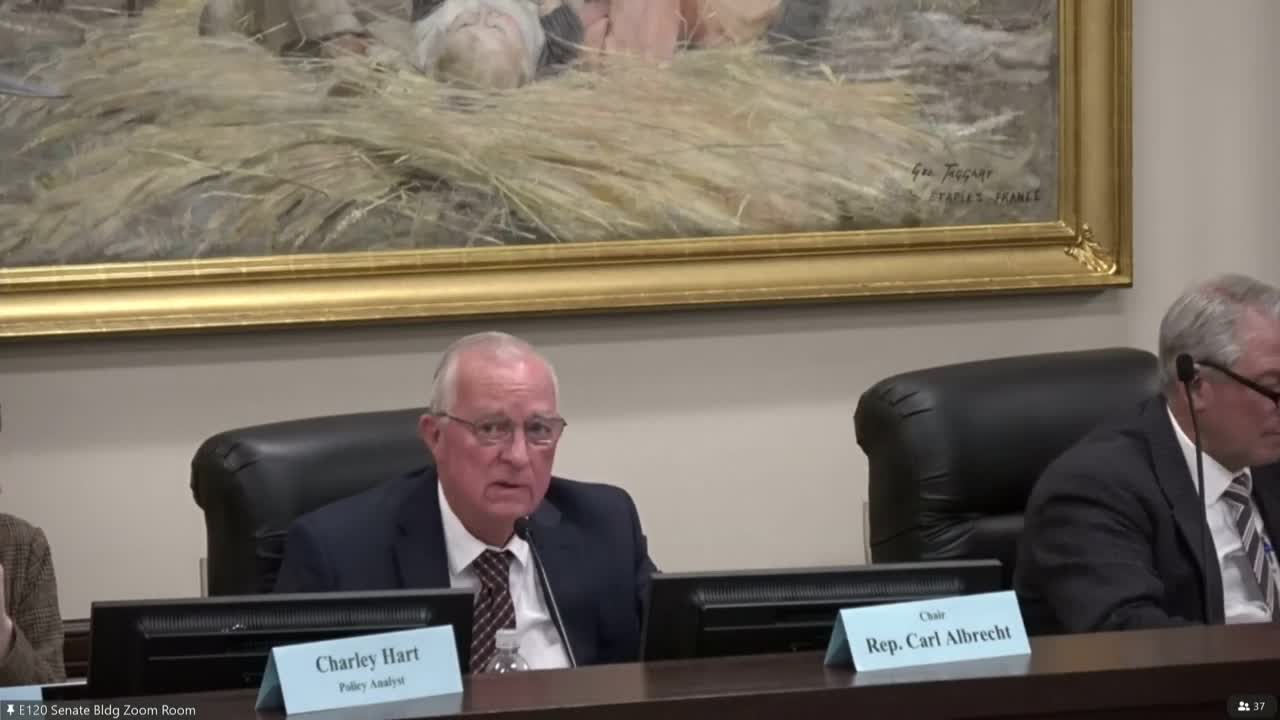Committee advances bill clarifying vesting and expansion rules for critical infrastructure materials amid debate
Get AI-powered insights, summaries, and transcripts
Subscribe
Summary
Representative Casey Snyder’s bill to clarify vesting and expansion rules for sand, gravel and aggregate operations cleared committee after extensive testimony from industry and community groups.
House Bill 355, the critical infrastructure materials amendments (first substitute), passed the Natural Resources, Agriculture and Environment Standing Committee on Feb. 14, 2025, after hours of testimony from producers, public‑health and community groups, local elected officials and industry representatives.
Representative Casey Snyder said the substitute is intended to clarify the definition of a "vested" gravel or aggregate operation and to establish consistent standards for expansions onto adjacent parcels. He told the committee the measure follows a legislatively commissioned study released in January 2025 and is meant to give regulatory clarity to operators and local governments while not favoring any single project.
Supporters from the industry, including Clyde Companies, Summit Materials/Kilgore Companies and Lakeview Rock, said the bill provides legal certainty to long‑term, capital‑intensive aggregate operations and helps ensure proximate supplies for infrastructure projects. Bill proponents argued that moving aggregate sources farther from urban centers raises material and transportation costs and brings additional traffic and greenhouse‑gas impacts.
Opponents urged more time for local governments to retain control over siting, permitting and zoning decisions. Healthy Environment Alliance of Utah and Save Our Canyons warned the bill would curtail local influence and could worsen air‑quality, public‑health and traffic impacts in communities adjacent to quarries. Several mayors, county officials and neighborhood advocates described long‑running issues with dust, noise, road safety and light pollution at active pits.
Representative Bolender offered the substitute and Representative Bolender and other members adopted Substitute 1; the committee then voted 9–3 to pass HB 355 Sub 1 out of committee. Opponents in the committee said they remain concerned about possible unintended effects on specific operations such as Parleys Canyon quarries, and some members recorded no votes because of those concerns.
Votes at a glance: Committee adopted Substitute 1 and passed HB 355 Sub 1 by a 9–3 vote; several public witnesses and organizations urged amendments or additional study by local governments and public‑health agencies prior to further action.
The bill moves forward after the committee voted in favor, but sponsors and opponents said additional legislative sessions and stakeholder work are likely to refine the approach.
